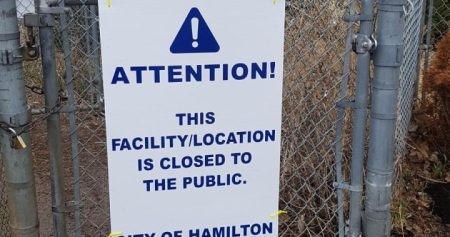In New Brunswick, Canada, the use of seclusion rooms in schools has become a subject of significant concern. These small, windowless spaces are intended for isolating students exhibiting disruptive or harmful behaviors, yet their implementation has raised questions about appropriate usage, oversight, and potential human rights violations. Kelly Lamrock, the province’s child and youth advocate, has tabled a report urging for stricter regulations and greater transparency surrounding the practice. He emphasizes that seclusion should only be employed as a last resort in situations where safety is paramount, rather than as a routine disciplinary measure. The current lack of comprehensive data on the frequency and location of seclusion room usage underscores the need for improved monitoring and accountability.
Lamrock’s report highlights the alarming trend of seclusion being used even with very young children, including kindergarteners. This raises particular concerns about the developmental impact of such isolation. Furthermore, the report indicates that existing guidelines for seclusion room usage are not consistently followed, leading to inconsistencies and potentially harmful practices. The arbitrary application of seclusion raises concerns about whether the rights of students are being adequately protected, prompting calls for legislative action to define acceptable circumstances for its use. The advocate points to other jurisdictions in Canada and the United States that have already taken steps to regulate or ban seclusion rooms, suggesting that New Brunswick should follow suit in implementing stricter controls.
The lack of comprehensive data collection on the use of seclusion rooms is a major impediment to understanding the scope and impact of this practice. Lamrock’s report calls for mandatory data collection and public reporting to ensure transparency and accountability. This data would provide valuable insights into how often seclusion is used, in which schools and districts, and the demographics of the students involved. Such information would be essential for evaluating the effectiveness of current practices and identifying any potential biases or disparities in their application. Moreover, the involvement of psychologists is crucial in assessing the psychological and emotional effects of seclusion on students, ensuring that the practice does not cause unintended harm.
The potential human rights implications of seclusion rooms are a significant concern. Isolating students, particularly young children, in small, windowless spaces can be traumatic and have lasting negative consequences on their mental and emotional well-being. The lack of clear guidelines and oversight increases the risk of misuse and abuse, further jeopardizing students’ rights. Legislation is necessary to establish clear parameters for when seclusion is permissible, ensuring that it is only used in truly exceptional circumstances and that the rights and well-being of students are protected. This legislation should include provisions for parental notification, access to support services for students, and regular review of seclusion practices.
Comparing New Brunswick’s current approach to seclusion with other jurisdictions highlights the need for reform. Many jurisdictions have recognized the potential harms of seclusion and have implemented stricter regulations or outright bans. These jurisdictions offer valuable examples of best practices that New Brunswick could adopt, such as requiring parental consent, limiting the duration of seclusion, and mandating the presence of trained personnel during the isolation period. Learning from the experiences of other jurisdictions can help New Brunswick develop a more humane and effective approach to managing challenging student behaviors.
Moving forward, it is imperative that New Brunswick prioritizes the well-being and rights of its students. Implementing Lamrock’s recommendations, including stricter regulations, mandatory data collection, and psychological assessments, is essential to ensure the responsible and ethical use of seclusion rooms. Furthermore, engaging in open dialogue with educators, parents, and students themselves can create a more collaborative and informed approach to addressing challenging behaviors and creating a safe and supportive learning environment for all. By taking proactive steps to reform seclusion practices, New Brunswick can ensure that the rights and well-being of its students are protected while also addressing the needs of educators in managing challenging classroom situations.










